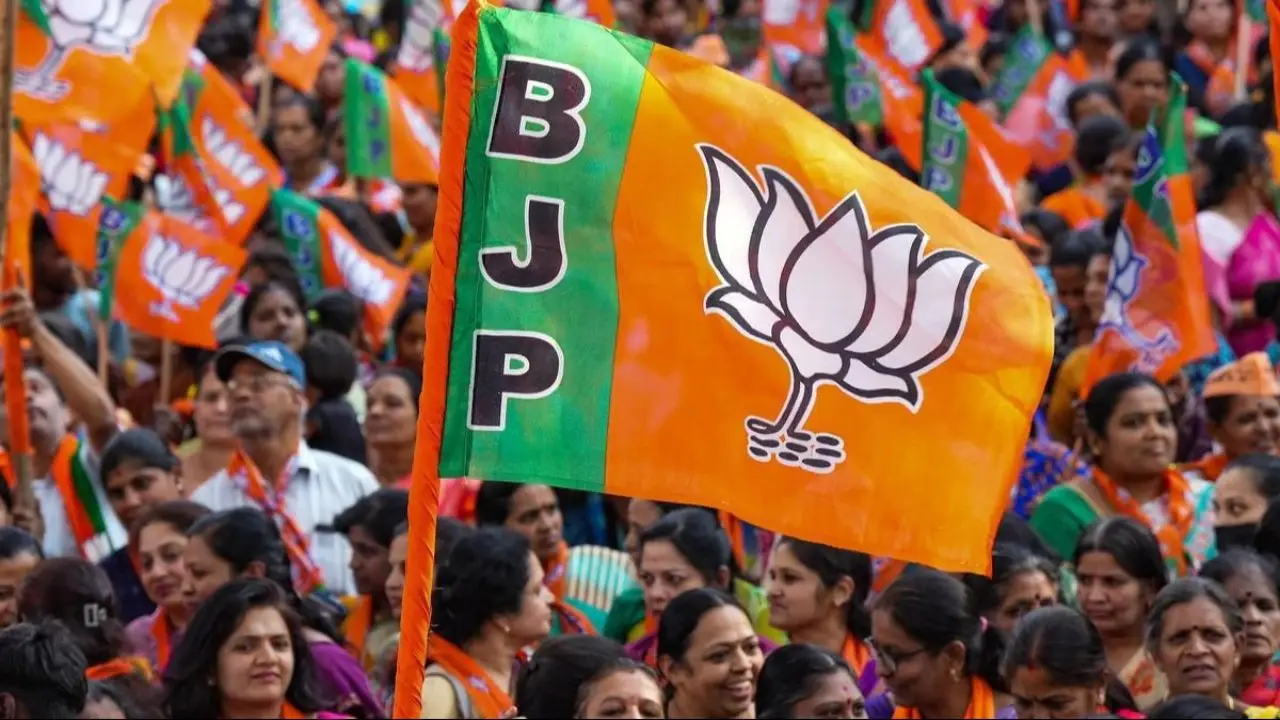
BJP (Social Media)
National News: The transparency of India’s democratic framework has once again become a matter of serious concern. A new report by the Association for Democratic Reforms (ADR)—a leading organization advocating electoral reforms—has exposed glaring issues related to the financial disclosures and spending patterns of political parties during the 2024 Lok Sabha elections. According to the report, the Bharatiya Janata Party (BJP) spent a total of ₹1,494 crore, which accounts for 44.56% of the total declared election expenditure. The Indian National Congress followed, spending ₹620 crore, or 18.5% of the total.
The ADR’s analysis covered a period between March 16 and June 6, 2024, encompassing the general elections as well as assembly elections in Andhra Pradesh, Arunachal Pradesh, Odisha, and Sikkim. In total, 32 national and regional parties spent ₹3,352.81 crore. Of this, national parties alone accounted for ₹2,204 crore, which is 65.75% of the total. The data clearly reveals that regional parties are losing ground in terms of financial influence, while national parties continue to dominate election spending.
The report shows that the majority of the spending—₹2,008 crore or 53%—was on publicity and campaign promotions. This was followed by ₹795 crore on travel and ₹402 crore given directly to candidates. Additionally, ₹132 crore was spent on virtual campaigns, and ₹28 crore was spent on publishing criminal records of candidates. Shockingly, of the total travel expenditure, ₹765 crore (96.22%) was spent solely on star campaigners and high-profile leaders, highlighting the increasing importance of celebrity-driven political outreach.
As per Election Commission rules, parties must submit their expense reports within 90 days of the conclusion of elections. However, the ADR report reveals that many parties flouted these guidelines. The Aam Aadmi Party (AAP) submitted its details with a delay of 168 days, while the BJP submitted state-wise reports 139 to 154 days late. Only the Congress Party submitted a consolidated and timely report. This raises a serious question—when so much public money is spent, why is reporting not taken seriously?
One of the report’s most troubling revelations is that 21 political parties had still not submitted their expenditure reports to the Election Commission at the time of ADR’s analysis. These include influential parties like the Nationalist Congress Party (NCP), Communist Party of India (Marxist), Jharkhand Mukti Morcha (JMM), and Shiv Sena (UBT). Additionally, parties like RJD, LJP (Ram Vilas), AJSU, and Kerala Congress (M) failed to submit spending details despite contesting in state elections. Even more concerning, the J&K People’s Democratic Party (PDP) and Kerala Congress (M) declared zero expenditure—a claim that appears implausible and demands scrutiny.
ADR clarified that the report only includes data from 32 recognized parties. However, a staggering 690 unrecognized parties also participated in the 2024 general elections. Dozens more contested in the state assembly polls, yet no financial disclosures are available for them. This highlights a major gap in transparency—where the financial operations of small and unrecognized parties remain almost entirely unregulated and invisible.
To improve transparency, ADR has recommended that the Election Commission extend its monitoring mechanisms to political parties, not just candidates. It has also urged that all financial transactions be made via trackable methods such as cheques, demand drafts, or RTGS, to curb misuse of cash and black money in elections. If implemented seriously, these steps could lead to significant reforms in India’s electoral accountability system.
The findings of this report make it abundantly clear that Indian elections are increasingly being driven by money, star power, and media campaigns, rather than ideology or policy debates. If the Election Commission fails to act decisively, the true spirit of democracy may be reduced to a costly performance, dominated by financial muscle and celebrity influence. The time has come to ensure not just candidate-level accountability, but also strict monitoring of political party spending, with timely and public disclosure.





Copyright © 2026 Top Indian News
